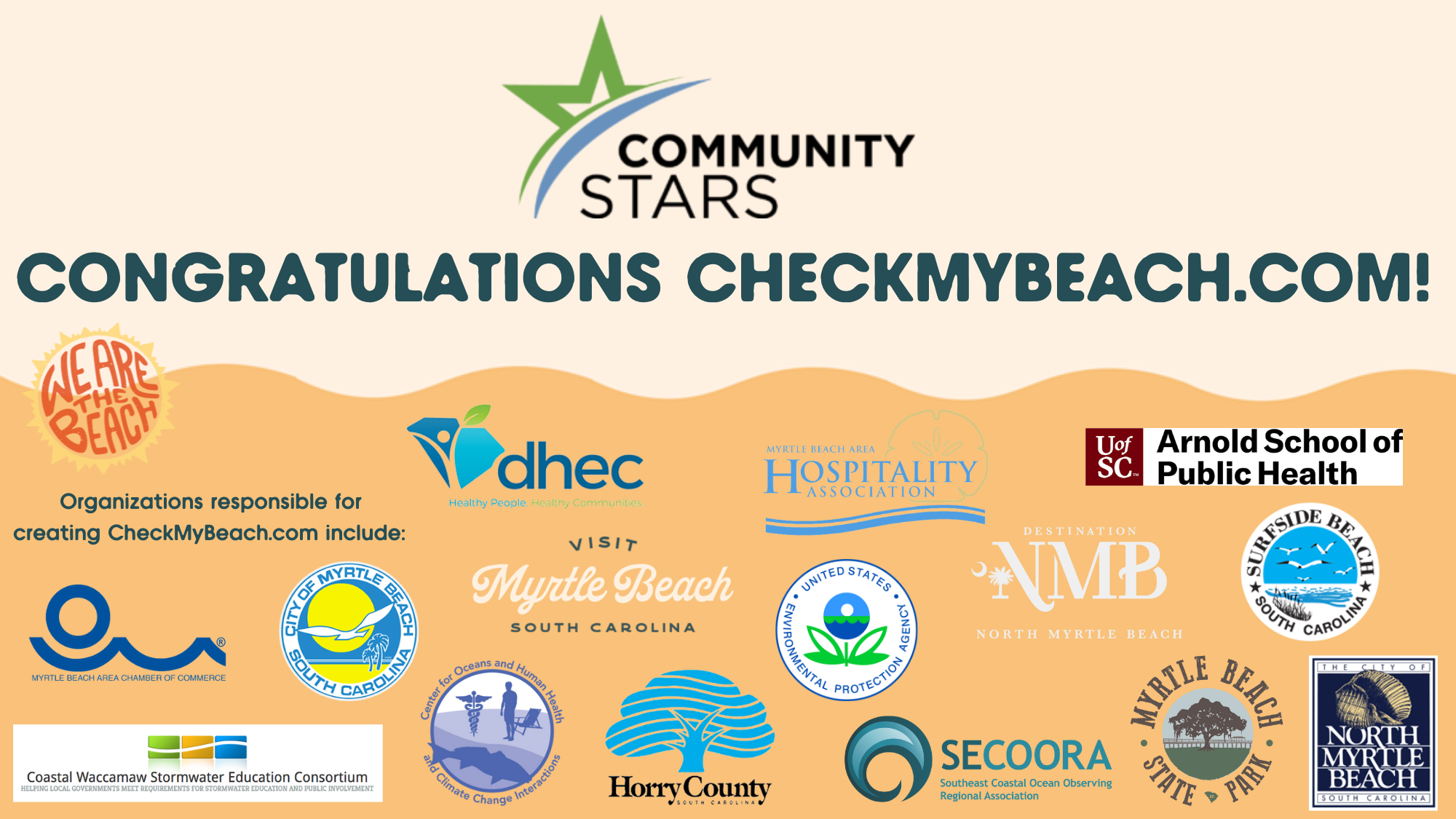Beachgoers in Horry County are able to receive up-to-date water quality and safety information thanks to the online resource CheckMyBeach.com. On Aug. 24, 2021, officials with the South Carolina Department of Health and Environmental Control (DHEC) bestowed the Check My Beach program with their Community Star Award.
The recognition was given to Check My Beach and those who collaborated on the program for enhancing the method in which environmental data is shared with the public, therefore, improving their health and quality of life.
Check My Beach was selected for the honor in 2019, shortly after the program launched, but due to COVID, DHEC was unable to present the award until now. For the past two years, the program has grown from 20 Check My Beach signs at beach access points in Myrtle Beach to 450 signs across the Grand Strand, according to Bryan Rabon, DHEC’s manager of Aquatic Sciences.
Along with the website and beach signs that include a QR code to easily access the website, the program includes brochures found throughout the Myrtle Beach area and various social media awareness promotions.
“The entire Check My Beach effort is designed to get accurate beach condition information into the hands of our local residents as well as our visitors. Along with water quality data, the resource provides a variety of beach safety information, including weather conditions, tide reports and rip tide warnings,” said Karen Riordan, President and CEO of the Myrtle Beach Area Chamber of Commerce (MBACC) and Convention and Visitors Bureau (CVB).
Check My Beach was made possible through a collaboration between DHEC, MBACC and CVB, the City of Myrtle Beach, and the Coastal Waccamaw Stormwater Education Consortium. Additional partner organizations include the City of North Myrtle Beach, the North Myrtle Beach Chamber of Commerce and Convention and Visitors Bureau, the Town of Surfside Beach, Horry County, Myrtle Beach State Park, the Myrtle Beach Area Hospitality Association, Coastal Carolina University, the Center for Oceans and Human Health and Climate Change Interactions, Southeast Coastal Ocean Observing Regional Association, the University of South Carolina Arnold School of Public Health and the United States Environmental Protection Agency.
